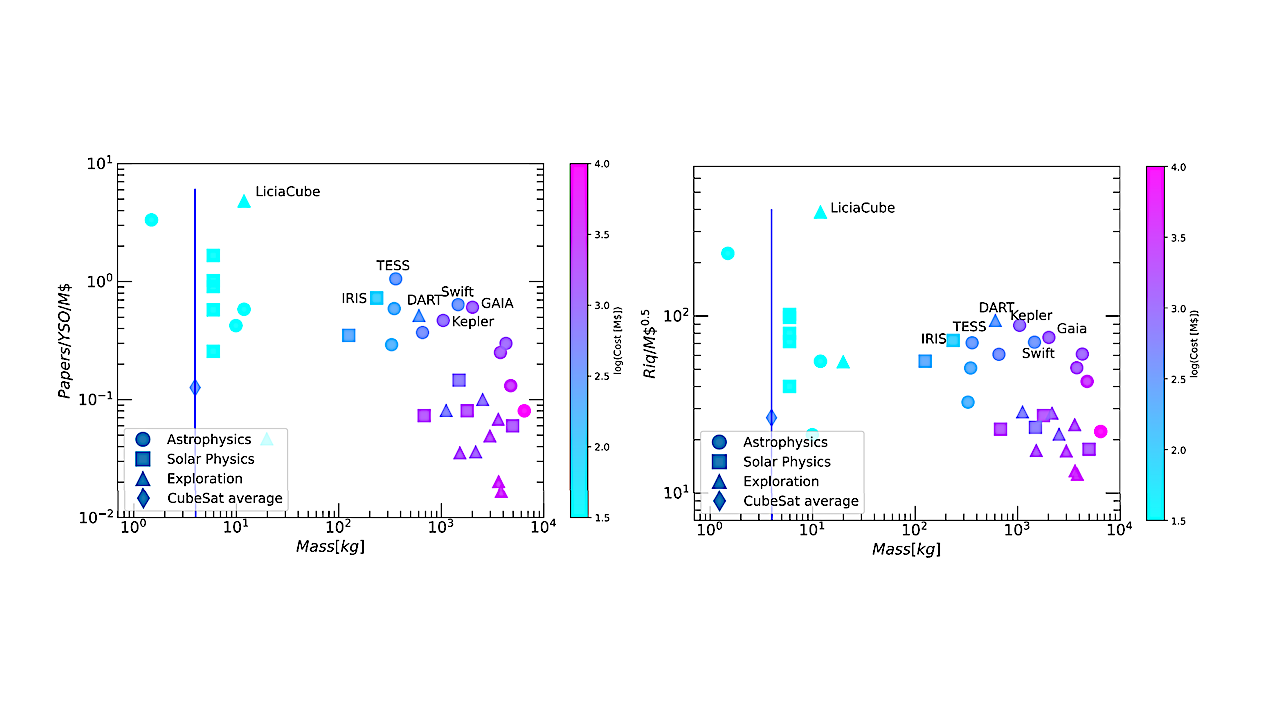Science in Peril: The Battle for Truth in a World of Misinformation
Science
2025-03-21 09:00:04Content

Science is the cornerstone of progress, innovation, and human well-being. It touches every aspect of our lives, from medical breakthroughs to technological advancements that keep our communities safe and thriving. When scientific integrity is threatened, we all stand to lose.
The current administration's approach to scientific research and evidence-based policy-making is deeply concerning. By undermining scientific institutions, dismissing expert research, and prioritizing political agendas over empirical evidence, we risk compromising the very foundation of knowledge that drives our nation's success.
We cannot remain silent while critical scientific research is marginalized or discredited. Our commitment to scientific truth is not just about academic pursuit—it's about protecting public health, driving economic innovation, and ensuring a safer, more informed future for all Americans.
Now is the time to stand up, speak out, and defend the scientific principles that have made our country a global leader in research, innovation, and discovery. Science is not a partisan issue—it's a fundamental pillar of our society that benefits everyone, regardless of political affiliation.
Defending Science: A Critical Battle for National Progress and Public Safety
In an era of unprecedented scientific challenges and political interference, the preservation of scientific integrity has become a paramount concern for researchers, policymakers, and citizens alike. The fundamental principles of scientific research and evidence-based decision-making are facing unprecedented threats that could potentially undermine the very foundations of national progress and public welfare.Protecting the Pillars of Knowledge and Innovation
The Crucial Role of Scientific Research in Modern Society
Scientific research represents the cornerstone of human advancement, driving innovation, healthcare, technological progress, and societal understanding. Every breakthrough, from medical discoveries to technological innovations, emerges from rigorous scientific methodologies that demand independence, objectivity, and intellectual freedom. The systematic approach of scientific investigation provides critical insights that shape our understanding of complex global challenges, from climate change to public health emergencies. The intricate ecosystem of scientific research depends on robust funding, institutional support, and an environment that encourages critical thinking and empirical exploration. When political interference threatens this delicate balance, the consequences extend far beyond academic circles, directly impacting citizens' quality of life, economic opportunities, and national competitiveness.Challenges to Scientific Autonomy and Institutional Integrity
Political interventions can profoundly disrupt scientific progress by introducing ideological constraints, limiting research funding, and undermining evidence-based policymaking. Such interference creates significant obstacles for researchers, potentially suppressing groundbreaking discoveries and hindering technological innovation. The potential consequences of compromising scientific independence are multifaceted and deeply concerning. Researchers may face unprecedented challenges in maintaining academic freedom, with potential restrictions on exploring controversial or politically sensitive topics. This environment of uncertainty can lead to brain drain, where talented scientists seek opportunities in more supportive international environments.Mechanisms of Protecting Scientific Integrity
Preserving scientific autonomy requires a multifaceted approach involving governmental oversight, academic institutions, and public advocacy. Implementing robust mechanisms that safeguard research funding, protect whistleblowers, and ensure transparent peer-review processes becomes paramount in maintaining the integrity of scientific institutions. Professional scientific organizations play a crucial role in developing ethical guidelines, promoting transparency, and creating networks of support for researchers facing institutional challenges. By establishing clear standards and providing platforms for dialogue, these organizations can help mitigate potential political interference and protect the fundamental principles of scientific investigation.Global Implications of Scientific Governance
The global scientific community increasingly recognizes the interconnected nature of research and innovation. International collaborations, knowledge sharing, and collective research efforts underscore the importance of maintaining open, unrestricted scientific dialogue. Countries that prioritize scientific integrity and provide supportive environments for researchers are more likely to attract top talent, drive technological innovation, and maintain competitive advantages in emerging fields. The long-term economic and societal benefits of supporting independent scientific research far outweigh short-term political considerations.Empowering Future Generations of Scientists
Investing in scientific education, providing comprehensive research training, and creating supportive institutional frameworks are essential for nurturing future generations of innovative researchers. By cultivating a culture that values critical thinking, empirical investigation, and intellectual curiosity, societies can ensure continued progress and adaptability in an increasingly complex global landscape. Educational institutions must play a proactive role in preparing students to navigate potential challenges, develop resilience, and maintain scientific integrity despite external pressures. This approach requires comprehensive curricula that emphasize ethical research practices, interdisciplinary collaboration, and the broader societal implications of scientific discoveries.RELATED NEWS
Science

Cosmic Threat Looms: Massive 'City-Killer' Asteroid Inches Closer to Earth's Doorstep
2025-02-18 18:06:57
Science

"Always Above": Space Force Unveils Groundbreaking Documentary at Emerald Coast Science Center Premiere
2025-04-29 14:54:53





